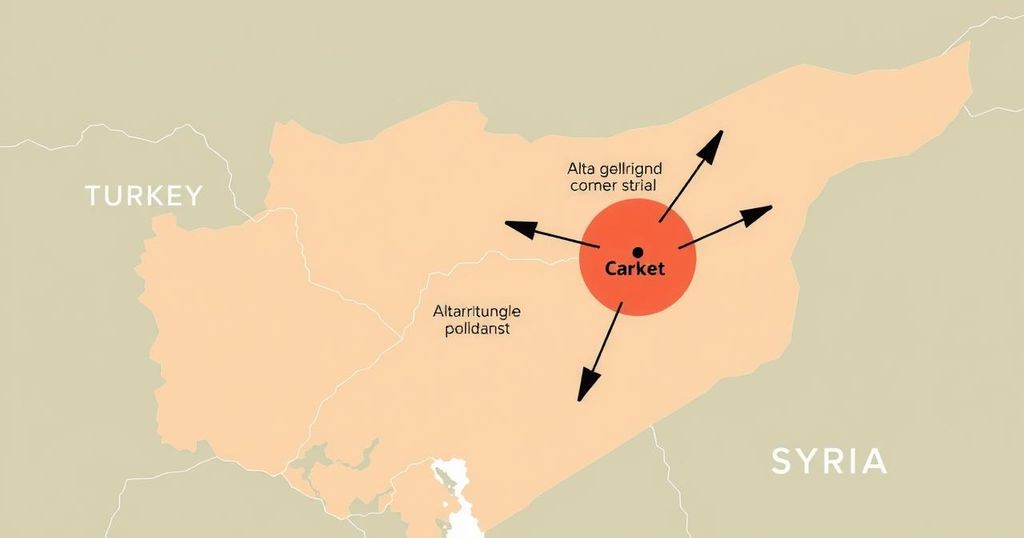Erdogan’s Stance on Kurdish Support in Post-Assad Syria

Turkey’s President Erdogan anticipates allies will stop supporting Kurdish forces in Syria after Assad’s removal. He equates the YPG with terrorist entities, while Germany and the U.S. stress the need for disarmament and security integration. The situation remains tense with ongoing clashes and U.S. troop involvement.
Turkey’s President Tayyip Erdogan stated that he anticipates foreign nations to withdraw their support for Kurdish fighters in Syria following the ousting of Bashar al-Assad. This remark aims to isolate the Kurdish forces that have collaborated with U.S. troops. Germany’s foreign minister emphasized the importance of disarming Kurdish forces and integrating them into Syria’s national security, while the U.S. is exploring a “managed transition” for the U.S.-backed Syrian Democratic Forces (SDF).
Erdogan remarked after a summit that there is no rationale for external support of the Kurdish YPG fighters. He characterized the YPG as an offshoot of the PKK, labeled as a terrorist organization by Turkey, the U.S., and the EU. He drew parallels between the YPG and the Islamic State, asserting that neither has a future in Syria. Erdogan also expressed expectation that efforts to combat terrorist entities would accelerate.
German Foreign Minister Annalena Baerbock acknowledged the necessity of ensuring Kurdish security for Syria’s freedom while addressing Turkey’s security concerns for overall stability. She stated that Kurdish factions must disarm and be integrated into Syria’s security framework. Additionally, Barbara Leaf, the U.S. Assistant Secretary of State for Near Eastern Affairs, noted a shift in conditions leading to Kurdish self-defense and emphasized a new approach for the SDF in partnership with Turkey.
The U.S. maintains approximately 2,000 troops in Syria, working alongside the YPG-led SDF, which played a pivotal role in combating the Islamic State. Turkey has conducted multiple cross-border operations against the SDF and urged Washington to cease its support for these fighters. Following allegations of conflict escalation due to Assad’s recent downfall, Turkey and allied Syrian forces captured the city of Manbij from the SDF, leading to a temporary ceasefire brokered by the U.S.
Erdogan underscored the vision of a new Syria for diverse groups to coexist peacefully, stating the need to eliminate threats like the Islamic State and PKK. Meanwhile, SDF commander Mazloum Abdi conveyed the potential withdrawal of foreign Kurdish fighters from the SDF ranks if a truce with Turkey is established. However, Turkish officials maintain that counter-terrorism operations will persist until the PKK/YPG disarms and foreign fighters exit Syria.
In summary, Turkey’s expectation that allies withdraw support for Kurdish fighters in Syria reflects Ankara’s ongoing efforts to eliminate perceived terrorist threats from the region. Erdogan’s stance aligns with statements from German and U.S. officials advocating for the integration of Kurdish forces into Syria’s national security framework, amidst rising tensions following Assad’s ouster. The complex interplay of regional security, the roles of different factions, and foreign military presence will significantly influence Syria’s future stability.
Original Source: www.hindustantimes.com







